We share our exclusive vegan grocery list and our top tips for getting the most out of your plant-based grocery haul.
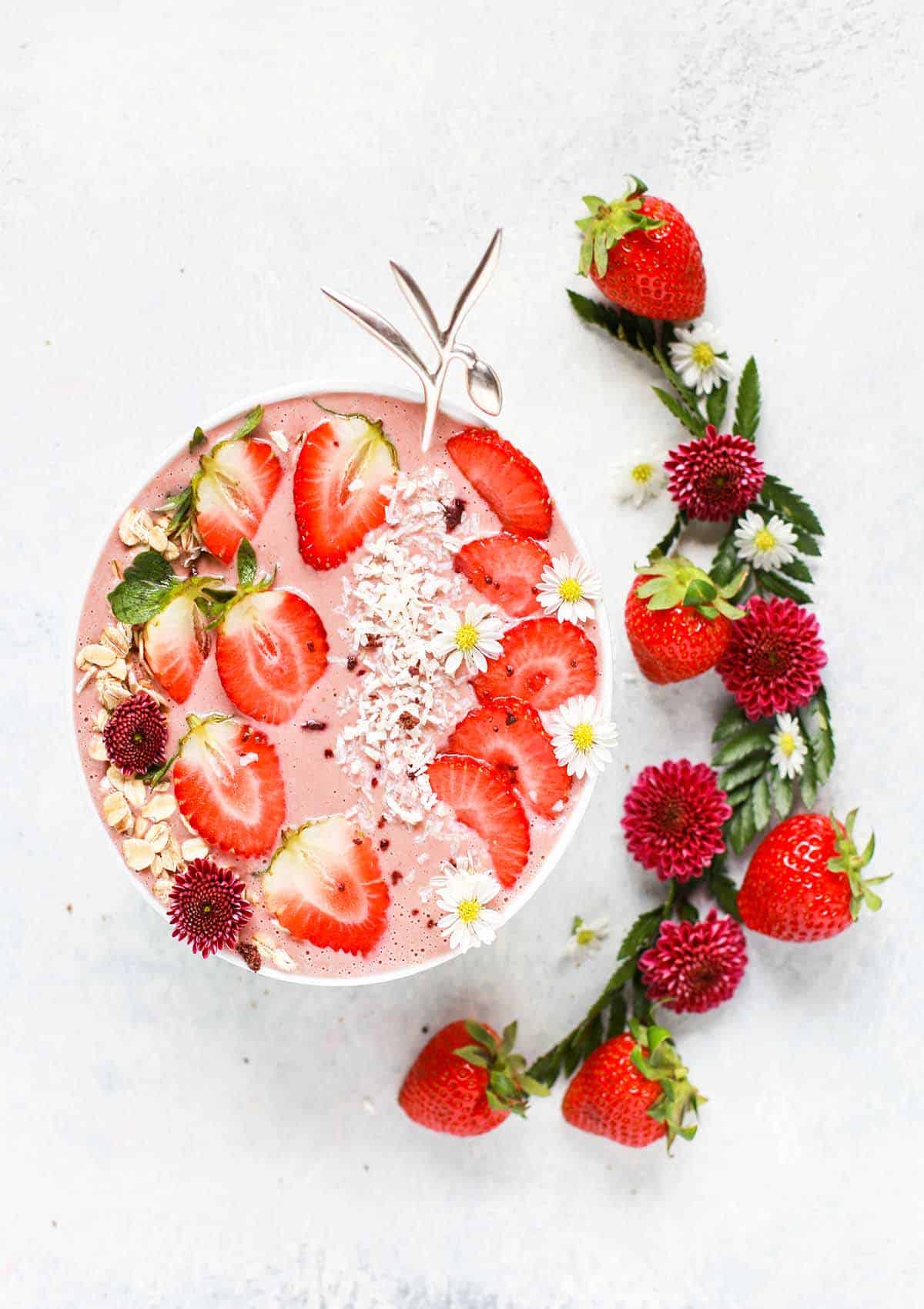
Roaming the aisles of the grocery store may be relaxing for omnivorous foodies, but for those transitioning to a vegan lifestyle, or who are looking to eat more plant-based, it can feel pretty intimating. It might also mean that you may need to modify household staples that you usually have on hand. So we set out to make this transition as easy as possible by providing you with the ultimate vegan grocery list. This printable resource is perfect for both long-time vegans and those new to plant-based eating and will be sure to make your trips to the grocery store easy and no-fuss.
Table of Contents
Benefits of Eating Plant-based
While the vegan diet, by definition, omits all animal products – it doesn’t imply that those looking to pursue this have to subside on grass clippings and rice cakes alone. We know, as positioned in a statement by the Academy of Nutrition & Dietetics, a well-planned vegan diet is healthful, nutritionally adequate, and suitable for all life-stages. Not only that, but a whole-foods plant-based lifestyle is associated with lower all-cause mortality and reduced cardiovascular-related mortality when compared to other diets comprised of animal proteins. That is why we’ve decided to compile a list of plant-powered staples with your nutrient needs, satiety and satisfaction in mind.
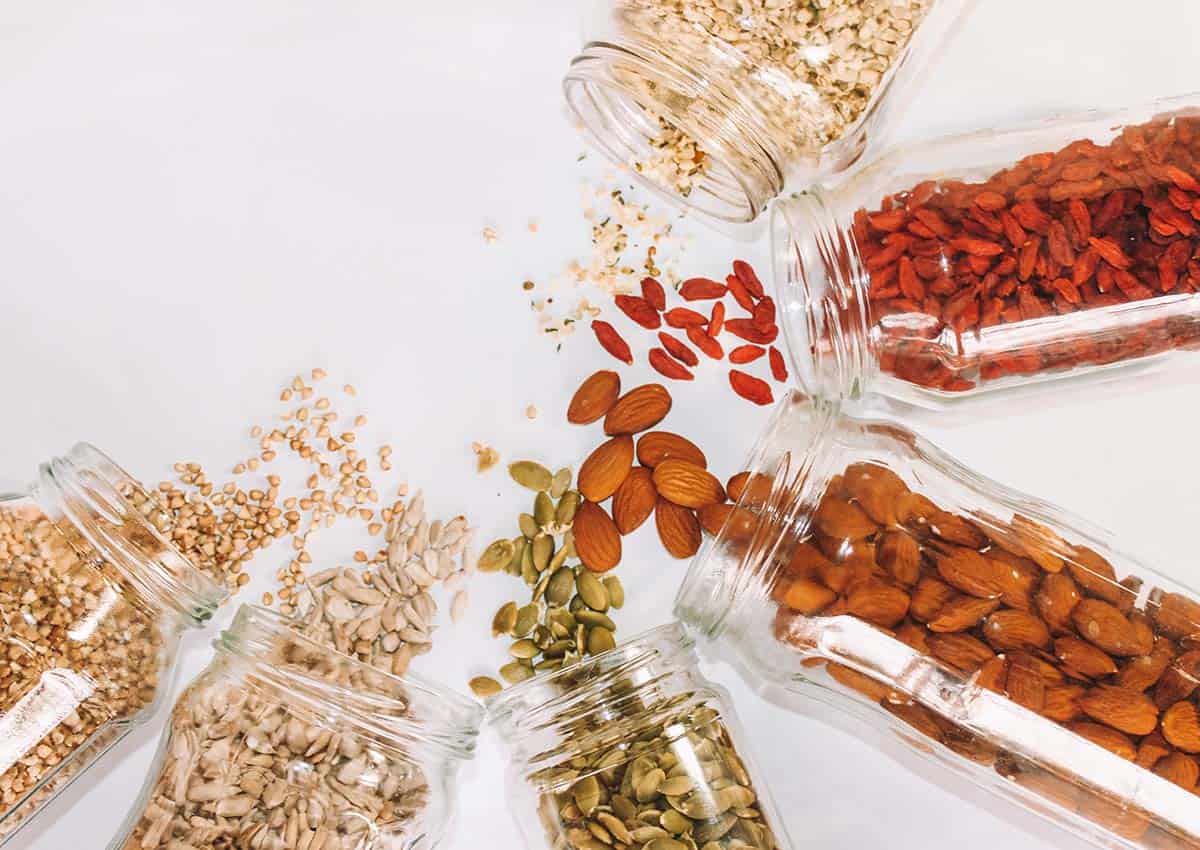
How To Build A Vegan Grocery List
When building a comprehensive grocery list, it’s important to note that you may not need to stock up on all these items at once. But you can use this all-encompassing list as a tool to
- Jog your memory on what items you may be running low on
- Inspire you to try new plant-based foods
- Remind you of foods or supplements that are important to include as part of a plant-based diet
- Help you decipher which products are free of animal-based ingredients.
When filling out your list, consider the main food groups of a healthy plant-based diet such as:
- Fruits
- Vegetables
- Whole grains
- Plant-based proteins (i.e legumes, tofu, tempeh, edamame)
- Nuts and seeds
Other categories that may play a part in a plant-based lifestyle include:
- Cooking/baking ingredients
- Refined grains
- Snack foods
- Condiments
- Dairy replacements (i.e. plant milks, vegan cheese, plant yogurt)
- Meat-like products (i.e. pulled jackfruit or seitan)
- Beverages
Foods To Avoid On A Vegan Diet
While we know that a vegan diet omits all animal-products, some animal-based foods may be more obvious than others. So let’s briefly touch on which foods you would want to avoid purchasing during a vegan grocery haul.
- Meats (beef, pork, chicken, turkey, & lamb)
- Seafood, (fish, shrimp, crab, lobster, anchovies, clams & other mollusks)
- Dairy (cow’s milk, cheese, yogurt, milk powders like whey & casein, heavy cream, butter/ghee, ice cream & other dairy-based treats)
- Eggs (yolks, whites, quiches, mayonnaise, etc.)
- Honey, gelatin, collagen, beeswax, lard & more
Important Nutrients on a Vegan Diet
As critical as it is to understand which foods are not included on a plant-based vegan diet, it’s just as important to consider what foods to include to ensure that you are maximizing on your nutrition and not running the risk of any nutrient deficiencies. With that said, let’s direct our focus to a few key nutrients to prioritize on a vegan diet and their sources.
Vitamin B-12 – Critical for red blood cell formation, protein metabolism and a healthy nervous system. Found primarily in supplements, nutritional yeast, as well as fortified products like tofu, soy milk and breakfast cereals.
Omega-3 fatty acids – Reduces inflammation, aids in neurological development, and may reduce the risk of certain conditions like heart disease and Alzheimer’s. Found in algae and yeast-based supplements as well as in small amounts from flax seeds, walnuts, chia seeds and hemp seeds and their respective oils.
Vitamin D – Crucial for bone health, immune function, mood regulation and the absorption of other nutrients such as calcium and phosphorus. We can obtain vitamin D via sun exposure, however this can have its drawbacks as the use of sunscreen, latitudes, and the time of year can impact vitamin D exposure. Luckily, vitamin D can be obtained in supplemental form as well as from UV-treated mushrooms, fortified juices, and plant-milks.
Calcium – Important for bone and teeth formation, muscle function, and heart health. Found in dark leafy greens, beans, legumes, tahini, citrus fruits, and fortified plant-milks, juices, and breakfast cereals.
Iron – Crucial for the development of healthy blood cells and oxygen transport throughout the body. Found in beans, legumes, whole grains, nuts, dark chocolate, dried fruit, dark leafy greens and certain fortified foods and cereals.
Zinc – Important for immunity and metabolic health. Found in oats, chickpeas, lentils, pumpkin seeds, tofu, and almonds.
Iodine – Necessary for a healthy thyroid and metabolism. Found in iodized salt as well as sea vegetables like dulse, nori, and other edible seaweeds.
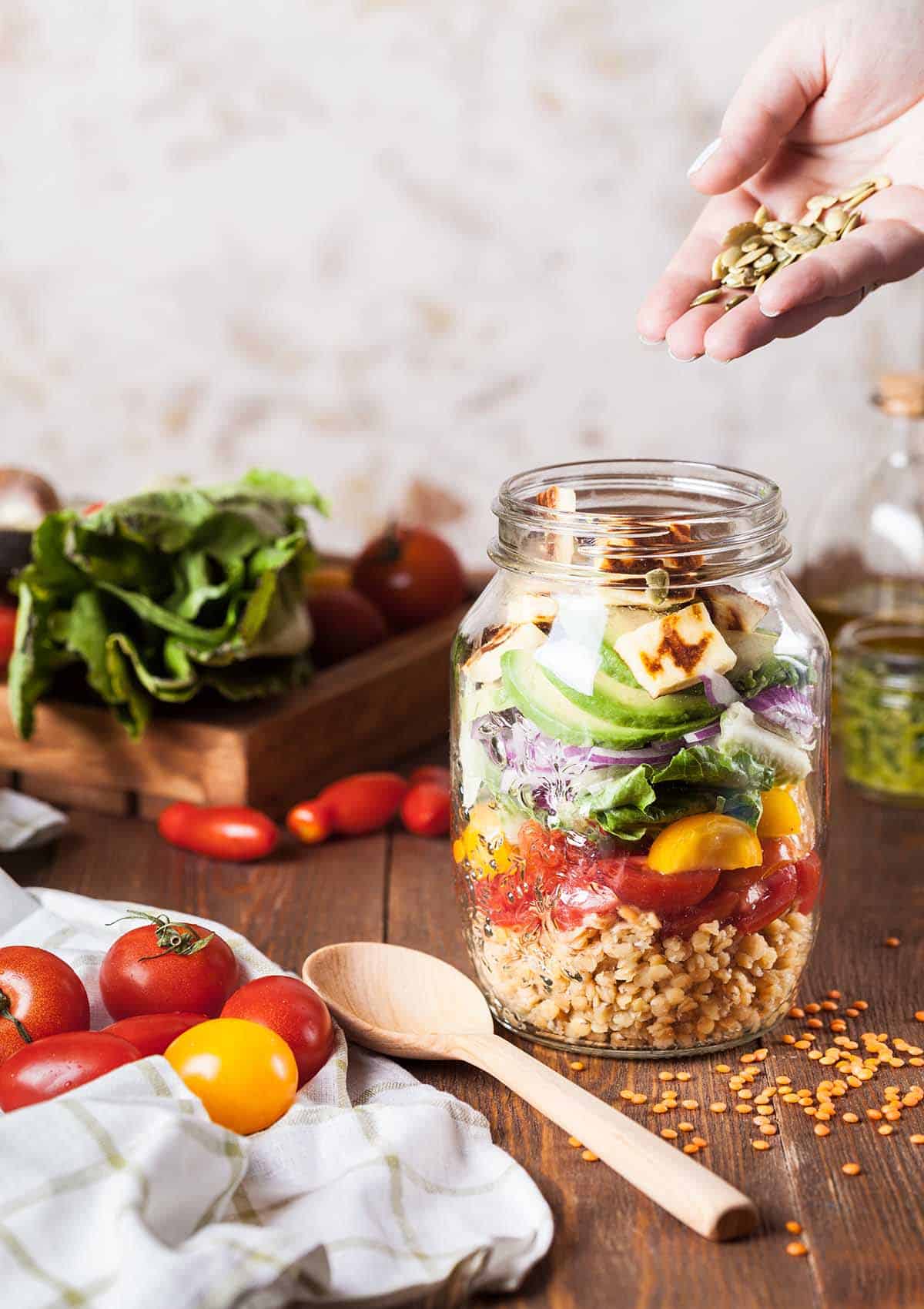
How to Shop Vegan On A Budget
Unfortunately, there exists some misconceptions that plant-based diets are expensive due to the higher amount of fresh produce and vegan specialty products. So it’s easy to understand why some people are intimidated by the thought of eating plant-based on a budget. However, it is totally possible to shop vegan on a budget and get the most bang for you buck.
Buy in Bulk
The truth is the staples of a whole-foods plant-based diet are some of the cheapest foods on the planet. Rice, potatoes, lentils, beans – these foods are available in bulk at low prices all across the world. Similarly, nut butters tend to be slightly cheaper than whole nuts and trail mixes, so considering the form of various foods may help you stay within budget too.
Buy Seasonal Produce
Additionally, focusing on local, seasonal, frozen, or canned produce can help rack up the savings as well. If you do prefer exclusively fresh produce, herbs, and condiments – freezing extra servings of these foods can help reduce food waste so they’re there for you when you need them.
Home-cooked vs. Pre-made
As with any cuisine, restaurant-purchased meals are much more expensive than any home-cooked, batch-prepped alternative. You may also consider preparing staples from scratch such as salad dressings, veggie patties and vegan pastries as this can help to save you a chunk of change in the long run.
Batch Cook & Freeze
Choosing recipes that freeze and thaw well like soups, stews, enchiladas, taquitos, veggie patties, and casseroles can help incentivize batch-cooking as well. If a meal tastes fresh, flavorful and intact after freezing and thawing out on a busy weeknight, you’re much more likely to avoid that late-night Postmates temptation.
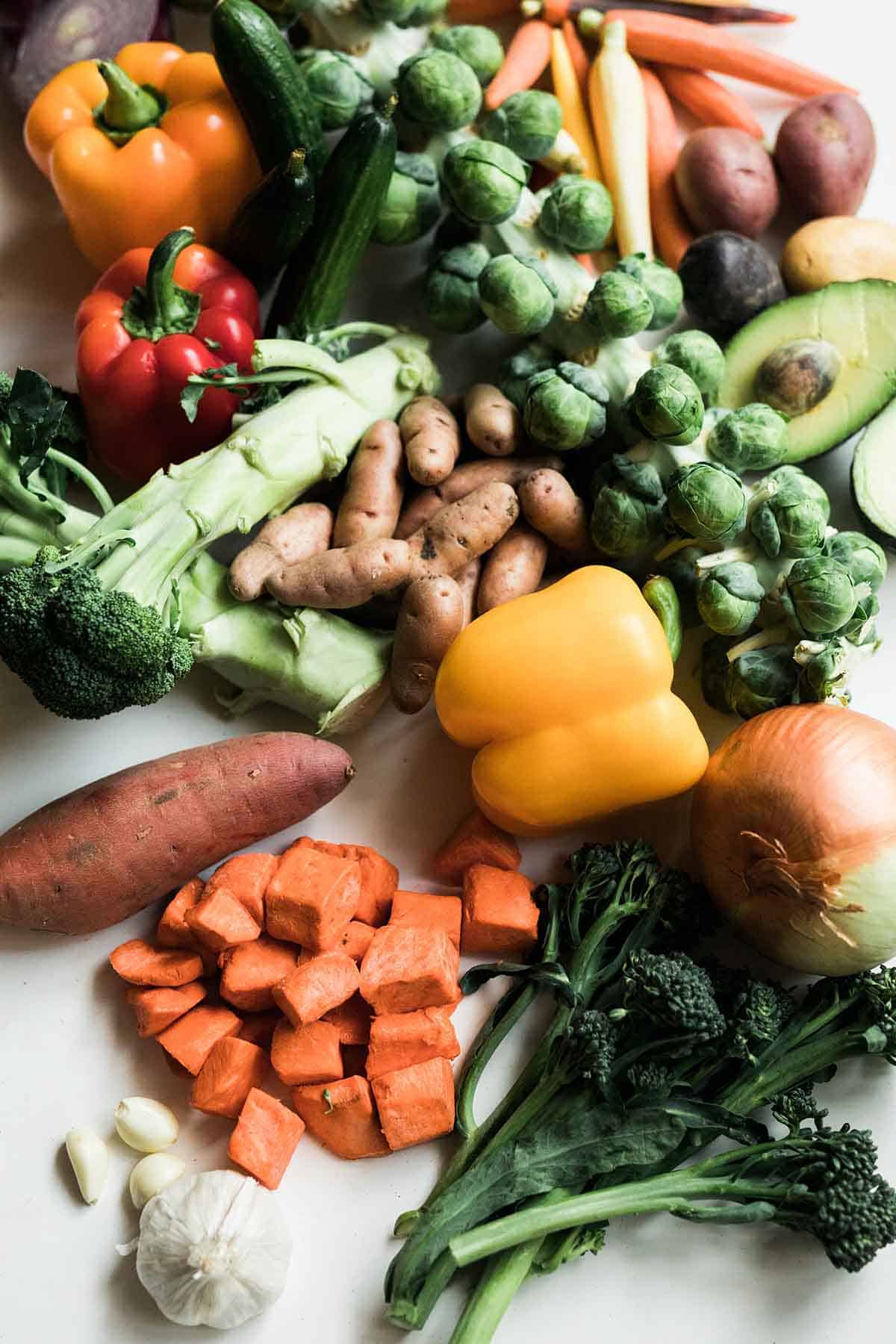
Best Online Stores For Vegan Shopping
If you are looking to spice up your meals with the latest plant-based specialty foods, certain online grocers offer lower prices than your local supermarket, with convenient door-to-door delivery services as an added bonus.
Thrive market is an online grocer that offers customers a huge selection of the latest vegan goodies at wholesale prices. It also allows consumers to filter their searches to strictly view products that are “vegan”, “gluten-free”, “organic”, etc. – making shopping for special diets a breeze.
Imperfect Foods is another fantastic brand looking to fight food waste and reduce carbon emissions as a company. The homepage of their website shares startling food waste numbers in an effort to educate consumers on why their brand’s hand-selected produce is not only great for you, but for farmers, producers, and the planet too.
Other grocery delivery services like Costco delivery, Amazon Fresh and Instacart offer competitive prices for vegan specialty products as well – and may ship to a broader range of locations. While not all of these stores are primarily vegan, more and more mainstream grocers are carrying new and delicious varieties of plant-based staples.
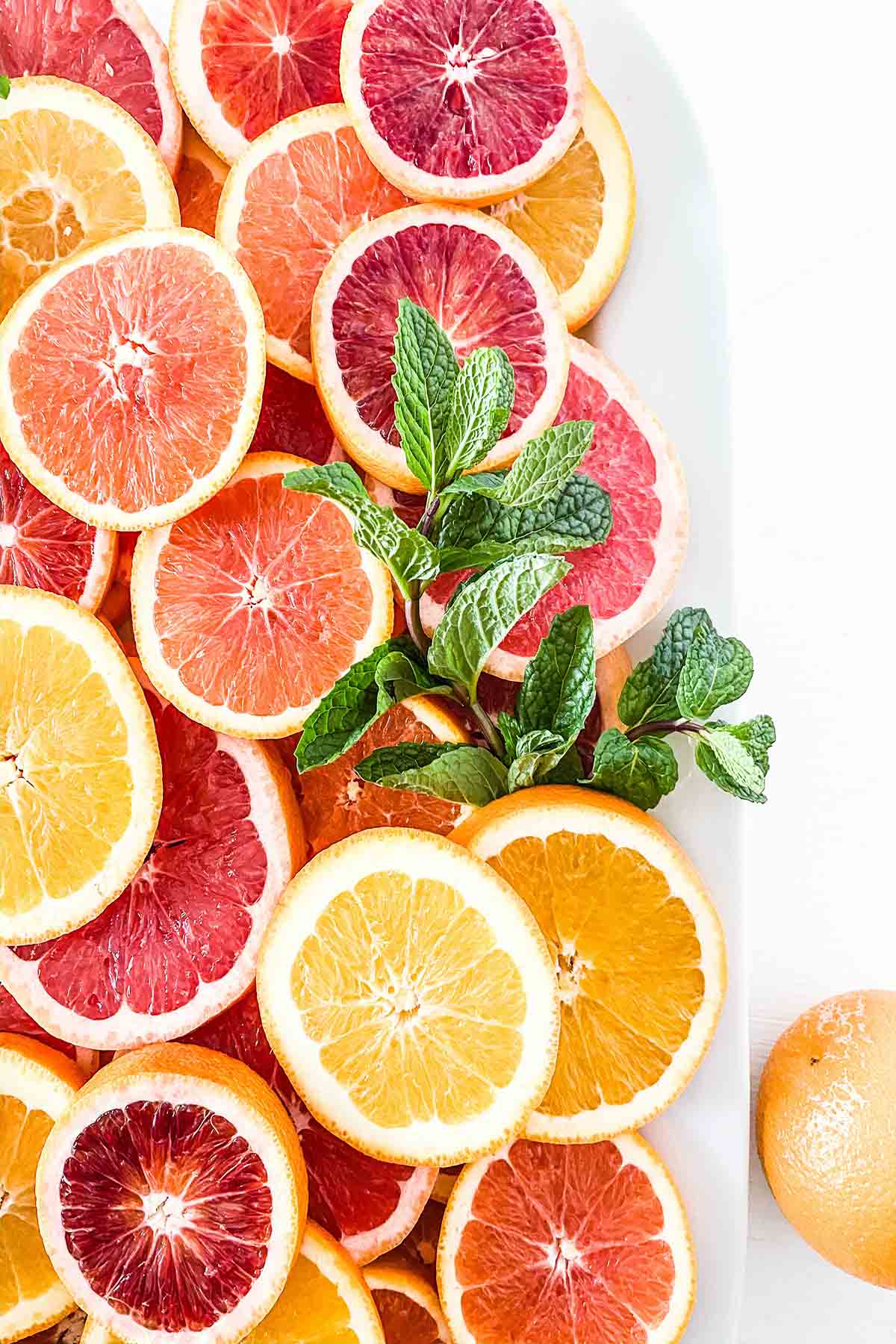
With that said, going plant-based in an omnivorous world has never been easier! While it may seem overwhelming to dive into a vegan lifestyle, or to start incorporating more plant-based foods in your diet, there has never been more resources, delivery services or delicious plant-based products than now. Rest assured there are no flavors, nutrients, or cuisines you have to miss out on if eating more plants is a part of your health goals this year. Just a little bit of creativity, intentionality, and a hearty appetite can make all the difference. And with a comprehensive grocery lists at your fingertips – you’ll be off the ground running in no time.
Did you find this vegan grocery list helpful? Let me know down in the comments!
MORE BLOG POSTS YOU MIGHT LIKE:
If you liked this blog post discussing the ultimate vegan grocery list, then you might also enjoy more blog posts on with meal plans included:
- Healthy High Protein Vegan Meal Plan (Week 1)
- Healthy High Protein Vegan Meal Plan (Week 2)
- Healthy One Week Keto Meal Plan | High Fat Low Carb Recipes
- Family Meal Plan | One Week of Healthy Family Meal Ideas
- One Week High Protein Paleo Meal Plan | Healthy Recipes
- 1 Week Gluten Free Meal Plan To Meet Your Health Goals
- Free Easy Gluten Free Meal Plan – Week Two of Healthy Family Recipes
Contribution By: Grace Pascale, MS, RDN. Grace Pascale Nutrition.
Updated on October 30th, 2021

Abbey Sharp is a Registered Dietitian (RD), regulated by the Ontario College of Dietitians. She is a mom, YouTuber, Blogger, award winning cookbook author, media coach specializing in food and nutrition influencers, and a frequent contributor to national publications like Healthline and on national broadcast TV shows.
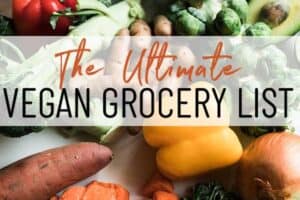
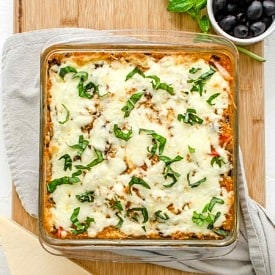

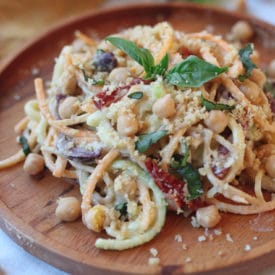

Leave a Comment